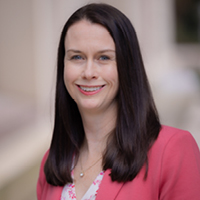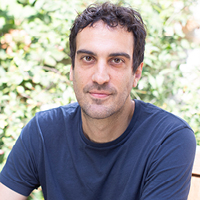Rollins Ask an Expert
Rollins thought leaders weigh in on major public health issues.

EXPERT: Dani Fallin, PhD, James W. Curran Dean of Public Health
The U.S. Surgeon General recently issued an advisory that, “calls attention to the growing concerns about the effects of social media on youth mental health.” What does this advisory mean for parents, youth, and researchers?
ANSWER
What we can do today as parents is pay attention to the behaviors of our own youth, what strategies and limits we use in our own families, and new evidence and government advice. From the youth perspective, a lot of them are saying that social media is too much for them, but often this realization is coming after significant negative experiences. They can’t see the challenges when they start and are programmed developmentally to not follow all the advice parents may be giving. We need to figure out ways to increase dialogue with youth about this, particularly peer-to-peer, that helps with self-regulation while at the same time building structural limits and protections. There is also the need for more data and research. The advisory highlighted that some of the major social media companies have not been cooperative in sharing data with researchers, so it is very hard to do this research when you are limited by access. While we can work on that front to push for data access, we also need to think of other ways to get this kind of research done because, unfortunately, neither parents nor the government have great guidance about what to do.
EXPERT: Briana Woods-Jaeger, PhD, Associate Professor of Behavioral, Social, and Health Education Sciences
How can we all do better [to support youth affected by racial trauma]?
ANSWER
Something we can do ourselves is critically self-reflect on our own biases and put in the work to address those so that when we are working with youth, they know we are authentically trying to understand, validate, and support them. It opens up so many opportunities. I can’t tell you how many times we’ve heard from our youth partners and research participants that they just want to be recognized and acknowledged, both for the painful experiences they have and also for their strengths and what they can contribute to society. That is something all of us can do.
EXPERT: Sarah Blake, PhD, Associate Professor of Health Policy and Management
How does Georgia compare to other states when it comes to mental health issues surrounding pregnancy?
ANSWER
The Georgia Department of Public Health released the most recent maternal mortality data, and for the very first time, mental health conditions was the second cause of pregnancy-related deaths in the state. I don’t know of any other state where mental health is a leading cause of death for pregnant and postpartum women. Women in our state are suffering and need greater support during and after pregnancy.
Medicaid is a great expansion of access, but we have to not only look at it through the lens of “let’s expand health insurance,” we also have to build the perinatal health workforce. We have to make sure women know that they can access these services and that they’re not just tailored to women who have a mental health diagnosis. These are resources that should be available to them during and after pregnancy for anything that is causing them stress or anxiety. If we can’t keep mothers healthy, we won’t have healthy babies. We have to have a multi-factored approach to addressing mental health for pregnant and postpartum women.
EXPERT: Joellen Schildkraut, PhD, Professor of Epidemiology
Are there any health equity related factors that may affect risk or survival [of ovarian cancer]?
ANSWER
Health equity factors may play into survival of ovarian cancer. In our African American Cancer Epidemiology Study, we are examining risk factors in Black vs. white women. Black women develop ovarian cancer at an earlier age but less frequently than white women, and their survival rate is worse. We are trying to determine why by collecting data and taking a “society to cell” approach. This means factoring in everything from the social determinants of health—such as housing and access to health care—in their neighborhoods across the U.S. to individual factors, such as inflammatory-related lifestyle exposures like cigarette smoking, diet, and even body powder use that can lead to a poorer prognosis.
EXPERT: Janet Cummings, PhD, Professor of Health Policy and Management
What are the biggest threats to mental health treatment?
ANSWER
Mental health workforce shortages and costs of care are major issues for families who are trying to help their child receive mental health treatment. Because of the shortage, there is enough demand for mental health providers to set up practices where they don’t have to take any insurance and can operate on a cash-only basis. So, if a family can afford to pay $100 to $150 per therapy session, they have a chance at finding good care for their child. But for families that rely on health insurance, their options are going to be more limited.
It’s also important to remember that nearly half of kids are insured through Medicaid, and these families are typically limited to seeking care at a mental health clinic that participates in the Medicaid program. Yet, because Medicaid reimbursement rates are so low, it affects the salaries these clinics can offer to providers, and they have a difficult time recruiting and retaining qualified providers.
EXPERT: Noah Scovronick, PhD, Assistant Professor of Environmental Health
What should policymakers be doing to protect the environment and human health?
ANSWER
They should be proactive about understanding the likely impacts of climate change locally and how to protect their people from those impacts. Also, they need to be thinking specifically about the intersection between climate change and equity because the effects are likely to fall disproportionately on underserved populations. If you’re not thoughtful or careful on how you design your interventions, you may actually worsen health disparities rather than close them.
ROLLINS ASK AN EXPERT is an ongoing series from the Rollins School of Public Health that aligns research experts with pressing public health topics. The questions and answers featured here are excerpts from longer articles published on the Rollins News Center. View articles from this series and more at: sph.emory.edu/news.



